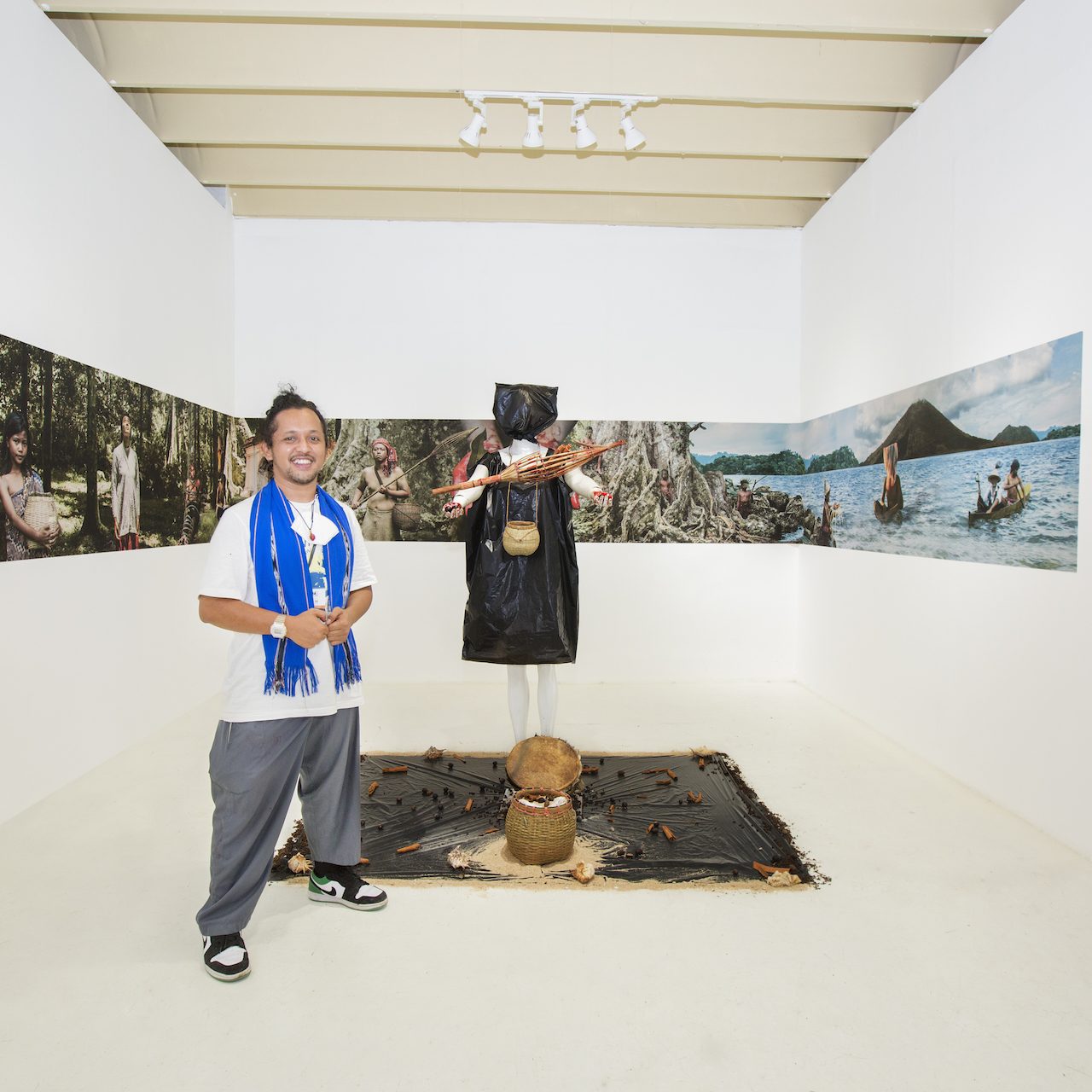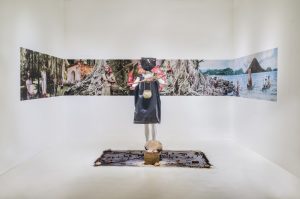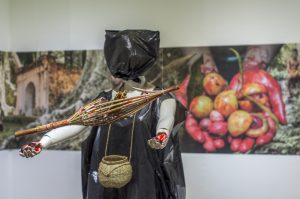Ersal Umammit (Indonesia-Ambon)
Ersal Umamit (born 1993 in Ambon) works as a photographer and is known to be active with Ombak Banda. He is interested in capturing events around Maluku, from culture, nature, to people’s lives. Apart from being an individual artist, he is also active in Paparisa Ambon Bergerak and Ombak Banda. Generally, he is interested in working to investigate historical narratives related to the history of Cosmo-politics and the post-colonial situation in Maluku and its surrounding area.
In one of his latest series of photos, “Apa Kabar Banda Neira Hari Ini” (“How is Banda Neira Today”), he brought up the Banda massacre tragedy of some 400 years ago with today’s reality. Ersal feels that the reality has not truly moved away and is still intertwined with the problem of exploitation of spices, nutmeg plantations, and the practice of middlemen that is still happening and harming the society of Banda.
“WHAT HAPPENS TO BANDA NEIRA TODAY” (2021)
Latex Print on Wallpaper, mixed media installation, sound | Variable size
Nutmegs, the most-precious spice since imperialism and colonialism, were not always a blessing for the people of Banda, the people who live in the island which is known as a biggest producer of nutmeg. 400 years ago, on May 8th 1621, 44 trader of nutmeg were executed in front of Nassau Fort, because their refuse the monopoly trade over the nutmeg, enforce by VOC. Previously there were also another 2500 people slaughtered which caused a great exodus of the Banda’s residents. Banda was then established as a cosmopolitan city, a home to a mix of various tribes, immigrants, and the indigenous people.
In the midst of the Indonesian tourism industry which relies on investors hand-in-hand with the government agreement and law with their capitalist agenda, are Banda’s problem nowaday. Beneath the beauty facade, the Banda Islands are actually left behind. They are still struggling with the exploitation of spices, exploitative practice of middlemen in nutmeg farming, and the exploitation of nature for the sake of tourism, all of which only benefit a few and treat the local residents as merely objects. Through the series of photographs and installation, Ersal wants to speak about his concern over the situation of Banda Island as a Bandanese people.



